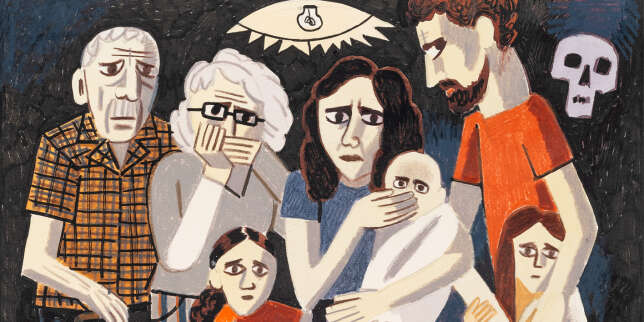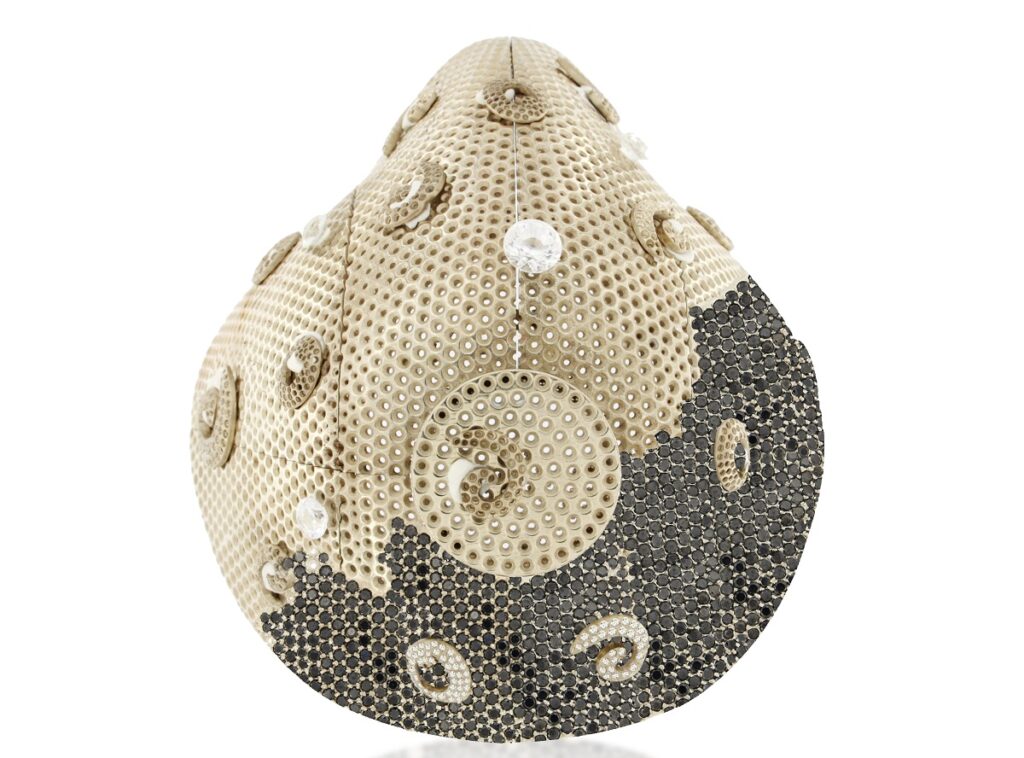Drought Mask
2021 - Sculpture (Sculpture)
34.29 x 15.24 x 19.05 cm
Rajni Perera
Drought Mask by Rajni Perera is a prototype that is suggestive of dire implications for human survival. Directly addressing the urgent climate crisis, specifically wide-spread drought, this sculpture imagines hybrid cultural aesthetics of the near-future after global collapse. Composed of various woven textiles complete with frills and fringes, leather, a gas mask, and pencil, Rajni’s mask prefigures future dystopian characters who are resilient and resourceful; self-fashioning tools for survival. The work is both talismanic and practical protection from a socially oppressive and/or potentially deadly atmosphere. Foretelling the surging visibility, and commodification, of face masks due to the Covid-19 pandemic (this work was made nearly a year before), Perera’s work speaks to the ever-accumulating manufactured and environmental assaults on our health and well-being. Synthesizing aesthetics across cultures, time periods, and crises, Perera’s mask constitutes a symbol of future mythology.
Rajni Perera’s practice foregrounds a hybrid model that merges immigrant politics, feminine power, mythology, and science fiction. Portending an unsettling near-term future, her sculptures and paintings consider alternative conceptions of futurity; counteracting the archaic narratives that perpetuate oppressive and homogenized aesthetics. Perera describes her work as a healing force that refigures repressive modes of representation and identity into means of reclaiming power. Perera’s work both foreshadows the effects of climate change, and imagines a cultural transformation in which those marginalized people who exist on the periphery can thrive.
Colors:
Related works sharing similar palette
» see more

© » LE MONDE
Au Musée juif de New York, requiem expressionniste pour les victimes du 7 octobre nav_close_menu Cet article vous est offert Pour lire gratuitement cet article réservé aux abonnés, connectez-vous Se connecter Vous n'êtes pas inscrit sur Le Monde ? Inscrivez-vous gratuitement Article réservé aux abonnés « Oct...

© » KADIST
Carolina Caycedo
2014YUMA o la tierra de los amigos (YUMA, or the Land of Friends) by Carolina Caycedo is a large mural containing a series of satellite photographs mounted on acrylic...

© » ARTSJOURNAL
Quietly, After a $4 Million Fee, MoMA Returns a Chagall With a Nazi Taint - The New York Times Arts | Quietly, After a $4 Million Fee, MoMA Returns a Chagall With a Nazi Taint https://www.nytimes.com/2024/02/12/arts/chagall-moma-return-over-vitebsk.html Share full article 25 Advertisement SKIP ADVERTISEMENT For years, “Over Vitebsk” occupied a central place in the collection of the Museum of Modern Art, which spoke of Marc Chagall’s painting of his hometown in the Russian empire as an important part of its holdings...
Related works found in the same semantic group
» see more

© » KADIST
Gauri Gill
2015Acts of Appearance is an ongoing series by Gauri Gill consisting of lush, large-scale color portraits of the residents of a village in Maharashtra, in Western India, which is known for making Adivasi masks...

© » KADIST
Enrique Ramirez
In Un Hombre que Camina (A Man Walking) (2011-2014), the sense of rhythm and timing is overpowered by the colossal sense of timelessness of this peculiar place...

© » KADIST
Simon Fujiwara
2016Masks is a series of abstract paintings by Simon Fujiwara that together form a giant, fragmented portrait of German Chancellor Angela Merkel’s face...


